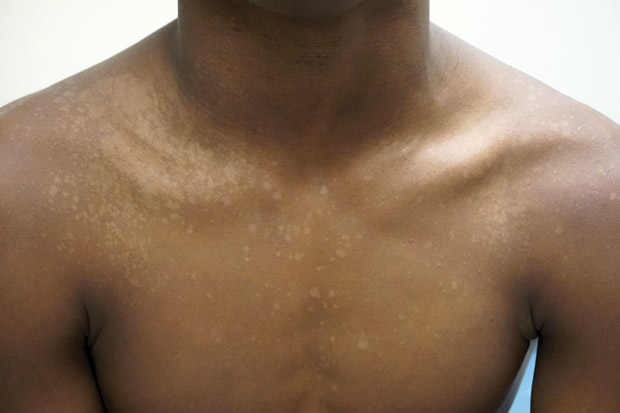Pacemakers, stents recalled; warnings on liver disease drug
This column reviews details on recent recalls, alerts, and approvals.
Recalls, warnings, and alerts
A class I recall of certain Assurity and Endurity implantable pacemakers by Abbott due to electrical problems and reduced battery life. There have been 135 complaints and 135 injuries. The recall includes 61,973 devices distributed from April 29, 2015, to Feb. 20, 2019.
A class I recall of the VICI SDS and RDS VENOUS STENT Systems by Boston Scientific due to reports indicating that the stents may migrate from the initial implantation site. There have been 17 complaints and reported injuries related to this issue. The recall includes 31,798 devices distributed from Sept. 21, 2018, to April 9, 2021.
A recall of the instructions for use and patient manual for the HeartWare HVAD System by Medtronic Inc. to provide updated information due to safety issues with the system's carrying cases, driveline cover orientation, and controller power-up sequence. There have been 64 related injuries and one death reported. The recall includes 130,716 devices distributed from March 7, 2006, to the present.
A class I recall of medical convenience kits by Medical Action Industries due to risk of fungal contamination. The company is recalling the kits that include the BD/CareFusion ChloraPrep 3-mL applicator, which was previously recalled due to the risk of contamination with Aspergillus penicillioides. No related complaints, injuries, or deaths have been reported. The recall includes 8,210 devices distributed from Dec. 12, 2019, to March 22, 2021.
A recall of 35 lots of levothyroxine and liothyronine (NP Thyroid tablets USP; 15 mg, 30 mg, 60 mg, 90 mg, and 120 mg) by Acella Pharmaceuticals LLC due to subpotency. The company has received 43 reports of serious adverse events that may be related. Routine testing has found these lots to contain less than 90% of the labeled amount of liothyronine and/or levothyroxine. Recalled products were distributed nationwide to wholesalers, pharmacies, and health care offices.
A recall of 1,468 product samples of diabetes drugs by Novo Nordisk because they were stored at temperatures below storage requirements. The recall includes Levemir, Tresiba, Fiasp, Novolog, and Xultophy product samples and does not impact products distributed to pharmacies or mail-order services. No related adverse events have been reported.
New warnings for obeticholic acid (Ocaliva) by Intercept Pharmaceuticals. The FDA added a new contraindication, its strongest warning, to the prescribing information and patient medication guide stating that the liver disease medication should not be used in patients with primary biliary cholangitis (PBC) and advanced cirrhosis. A boxed warning will also include this information and related warnings about this risk. In the five years since the drug's accelerated approval, the FDA has identified 25 cases of serious liver injury leading to liver decompensation or liver failure associated with the drug in patients with PBC and cirrhosis. Many of the patients had advanced cirrhosis before starting the drug. Based on the original clinical trials, the FDA believes the benefits of the drug outweigh the risks in patients with PBC who do not have advanced cirrhosis.
A letter to clinicians alerting them to stop using certain syringes and needles with needle safety devices manufactured by Guangdong Haiou Medical Apparatus Co. until further notice. The FDA received information about quality issues, including needles detaching from the syringe after injection and other needle safety device failures.
An alert advising patients and caregivers to keep electronic devices at least six inches away from implanted medical devices. Some newer cell phones and smart watches have magnets that may cause some pacemakers, defibrillators, and other implanted medical devices to go into a magnetic safe mode (allowing for safe operation during MRI scans and other procedures) and temporarily suspend normal operation, the FDA said.
A recall of one lot of sterile water for injection USP (100 mL in single-dose glass flip-top vials) by Hospira due to a confirmed customer report for a single vial with a visible particulate. No related adverse events were reported. The recalled lot was dis-tributed nationwide to wholesalers, distributors, and hospitals from October to December 2020.
A recall of one lot of bupivacaine hydrochloride injection USP (0.5%) and one lot of lidocaine hydrochloride injection USP (1%) by Hospira due to mislabeling. A portion of each lot was incorrectly labeled as the other product, and the issue was identified during the investigation of a confirmed customer report. The recalled lots were distributed nationwide to wholesalers, distributors, retailers, and hospitals in the U.S., Puerto Rico, and Guam from Dec. 29, 2020, to April 15, 2021.
Recalls of hand sanitizers due to the presence of methanol. Dibar Nutricional recalled 27 lots of DIBAR Labs Hand Sanitizer and two lots of ProtectoRx Hand Sanitizer, Global Sanitizers recalled 50,000 units of Medically Minded Hand Sanitizer, and Scentsational Soaps & Candles expanded its previous recall to include three lots of Goose Creek Hand Sanitizer plus Aloe and one lot of COCO TKO Hand Sanitizer.
COVID-19 updates
Expansion of the emergency use authorization (EUA) for the Pfizer-BioNTech COVID-19 Vaccine. The FDA amended the EUA originally issued for vaccine administration in individuals ages 16 years and older to include adolescents ages 12 through 15 years. In an ongoing randomized, placebo-controlled clinical trial in the United States, side effects in adolescents were consistent with those reported in trial participants ages 16 years and older.
Revocation of the EUA for the Battelle CCDS Critical Care Decontamination System. The system had been authorized for use in decontaminating compatible N95 respirators for multiple-user reuse by health care workers. In response to changing customer needs, the company requested voluntary withdrawal of the authorization and has ceased all of the system's decontamination site operations and marketing activities.
Two reminders for clinicians. The FDA reminded clinicians that results from currently authorized SARS-CoV-2 antibody tests should not be used to evaluate a person's level of immunity or protection from COVID-19 at any time, and especially after COVID-19 vaccination. The agency also reminded clinicians to provide clear, step-by-step instructions to patients who self-collect anterior nasal samples for SARS-CoV-2 testing in a health care setting.
Abbreviated new drug applications for certain drugs that have seen increased demand during the COVID-19 public health emergency. These medications include morphine sulfate injection USP (30 mg/30 mL [1 mg/1mL] in single-dose patient-controlled analgesia vials) and 23.4% sodium chloride injection USP (120 mEq/30 mL [4 mEq/mL] in single-dose vials).
Approvals
A new indication for dapagliflozin (Farxiga) to reduce the risk of kidney function decline, kidney failure, cardiovascular death, and hospitalization for heart failure in adults with chronic kidney disease who are at risk for disease progression. Efficacy for the new indication was assessed in a placebo-controlled study of 4,304 patients, which had a composite end point of at least a 50% reduction in kidney function, progression to kidney failure, or cardiovascular or kidney death. Overall, 197 of 2,152 patients who received the drug had one of the composite end point events compared to 312 of the 2,152 patients in the placebo group. In addition, 100 patients who received the drug were hospitalized for heart failure or died of cardiovascular disease, compared to 138 patients who received placebo. The drug was originally approved in 2014 to improve glycemic control in adults with type 2 diabetes in addition to diet and exercise.
Amivantamab-vmjw (Rybrevant) to treat certain adult patients with non-small-cell lung cancer. The drug is the first treatment for patients whose tumors have epidermal growth factor receptor exon 20 insertion mutations. The FDA also approved the Guardant360 CDx as a companion diagnostic for the drug. Efficacy was assessed in a study of 81 patients with non-small-cell lung cancer and the mutations whose disease had progressed on or after platinum-based chemotherapy. All patients received the drug, and the overall response rate was 40%. The median duration of response was 11.1 months, with 63% of patients having a duration of response of six months or longer. The most common side effects include rash, infusion-related reactions, skin infections around the fingernails or toenails, muscle and joint pain, shortness of breath, nausea, fatigue, swelling in the lower legs or hands or face, sores in the mouth, cough, constipation, vomiting, and changes in certain blood tests.
First generic drug approvals
Tirofiban hydrochloride injection (12.5 mg/250 mL [50 µg/mL] in single-dose containers) for the treatment of patients with acute coronary syndrome, including those who will be managed medically and those undergoing percutaneous transluminal coronary angioplasty or atherectomy. (Brand name: Aggrastat)
Pregabalin extended-release tablets (82.5 mg, 165 mg, and 330 mg) for the management of neuropathic pain associated with diabetic peripheral neuropathy or postherpetic neuralgia. (Brand name: Lyrica CR)
Macitentan tablets (10 mg) for the treatment of pulmonary arterial hypertension (WHO Group I) to reduce the risks of disease progression and hospitalization. (Brand name: Opsumit)
Sodium chloride injection (23.4%) USP (120 mEq/30 mL [4 mEq/mL] in single-dose vials) as an additive in parenteral fluid therapy for use in patients who have problems with sodium electrolyte intake or excretion and sodium chloride injection (14.6%) USP (50 mEq/20 mL and 100 mEq/40 mL) for the parenteral restoration of sodium ion in patients with restricted oral intake. (Brand name: None provided)
Tiopronin tablets (100 mg) for the prevention of cystine stone formation in certain adults and pediatric patients ages nine years and older with severe homozygous cystinuria. (Brand name: Thiola)
Deoxycholic acid injection (20 mg/2 mL [10 mg/mL] in single-dose vials) for improvement in the appearance of moderate to severe convexity or fullness associated with submental fat in adults. (Brand name: Kybella)
Note: The FDA states that drugs are not always commercially available immediately after approval.




